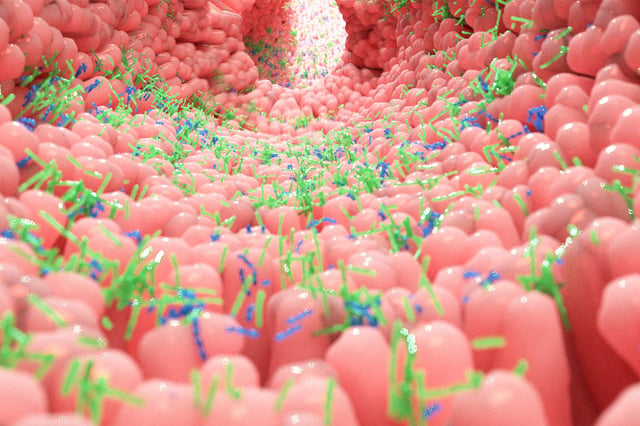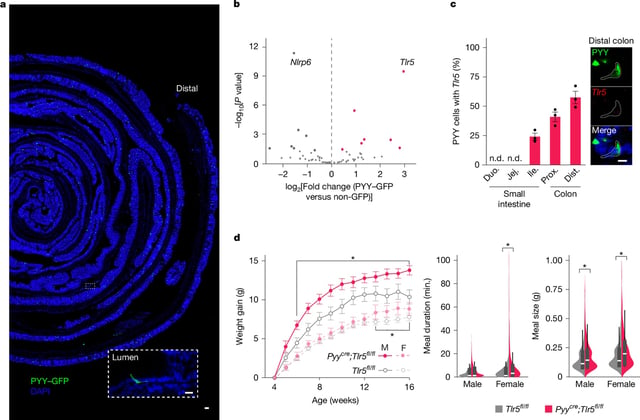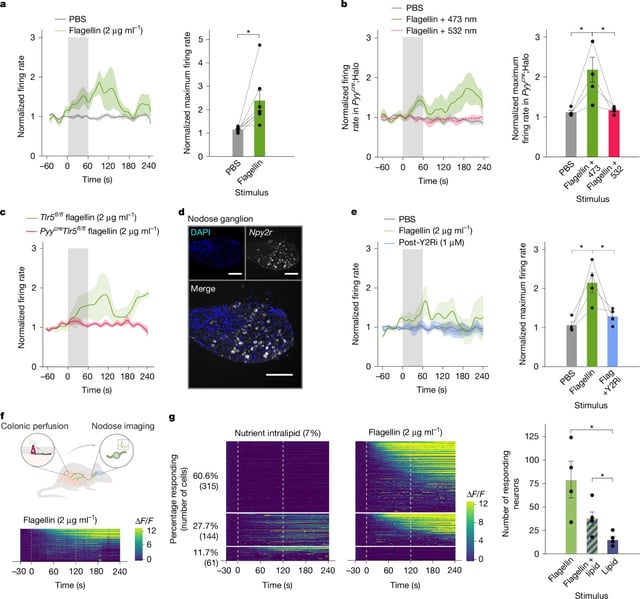Overview
- Fasting mice given a small dose of bacterial flagellin from Salmonella Typhimurium exhibited immediate reductions in food intake, demonstrating real-time appetite control.
- Mice engineered without TLR5 receptors in neuropod cells failed to sense flagellin signals and consequently consumed more food and gained weight.
- Direct administration of flagellin to germ-free mice produced the same appetite-suppressing effect, confirming the mechanism operates independently of live gut bacteria.
- Experiments showed feeding suppression occurred via neural signaling rather than through immune or metabolic pathways.
- Researchers plan follow-up studies on how diet-driven microbiome shifts influence this circuit and will explore interventions targeting it for obesity and mental health therapies.



